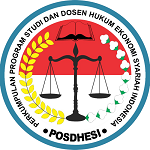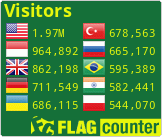Sharia Economic Law Analysis of Mud Bathing in Tiktok Live as Online Begging (Maqashid Syariah Approach)
DOI:
https://doi.org/10.32332/muamalah.v3i1.7831Keywords:
TikTok, Maqashid Sharia, Sharia Economic Law, Online BeggingAbstract
The phenomenon of live mud bathing content on TikTok has stirred controversy, being perceived as a manifestation of online begging. TikTok’s live streams attract significant viewership, allowing some participants to earn substantial sums in a single session. However, this practice raises ethical concerns and conflicts with the principles of Maqashid Sharia, particularly in upholding human dignity and avoiding harm. This study aims to systematically analyze the issue through the perspectives of Sharia Economic Law and Maqashid Sharia. The research synthesizes relevant references from scholarly books and journals using a literature review methodology. The analysis indicates that live mud bathing content on TikTok primarily results in financial losses rather than benefits for Indonesian viewers. Furthermore, the study proposes recommendations for the Minister of Religious Affairs to ensure that TikTok content in Indonesia adheres to educational standards and local regulations. The novelty of this research lies in its application of Sharia Economic Law and Maqashid Sharia principles to analyze a contemporary digital ethics issue. This study contributes to the discourse on Islamic jurisprudence and digital media ethics by critically evaluating the ethical dimensions of live mud bathing on TikTok. The findings underscore the need for regulatory measures and moral guidelines to mitigate the negative impact of such content, ensuring alignment with societal values and religious principles.
Downloads
References
Downloads
Published
Issue
Section
License
Copyright (c) 2024 Luthfiyah Dewi Masyithoh, Dwi Putra Amrah, Imron Musthofa

This work is licensed under a Creative Commons Attribution-ShareAlike 4.0 International License.
All articles in the Mu'amalah: Jurnal Hukum Ekonomi Syariah can be disseminated on condition that they still include the identity of the article and the source (Mu'amalah). The publisher is not responsible for the contents of the article. The content of the article is the sole responsibility of the author.
Authors who publish this subject agree to the following terms:
First, the Authors retain copyright and grant the journal rights from the first publication with the work simultaneously licensed under a Creative Commons Attribution-ShareAlike 4.0 International License that allows others to share the work with an acknowledgement of the work's authorship and initial publication in this journal.
Secondly, the authors can enter into a separate or an acknowledgement of its initial (e.g., post-institutional repository or publish it in a book) publication in this journal.
![]()
Third, the authors are permitted and encouraged to post their work online (e.g., in institutional repositories or on their website) before publishing work is cited.








